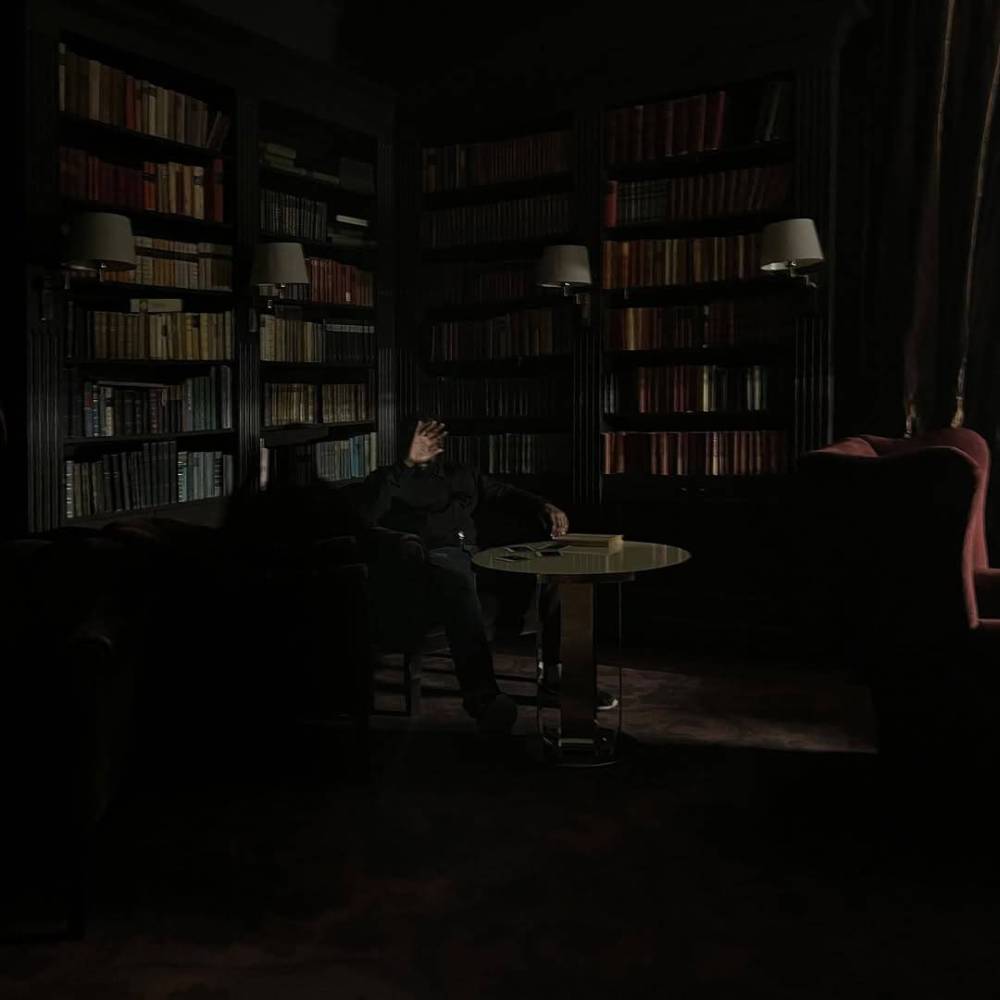Photo by Natalia Vacheishvili
Ock Sportello knows every word to “Choppa Style.”
Abu Zubaydah awoke from a coma in a pool of his own blood. Zubaydah, who had been shot multiple times and fallen from a roof during a 2002 CIA raid, suffered what the Pakistani military doctor who treated him described as the most severe wounds he had ever seen a patient survive. According to the CIA man watching over the comatose Zubaydah, the first thing the captive did upon waking was beg to be smothered with a pillow.
An imagined Zubaydah is among the cast characters met on their deathbeds over the course of billy woods’ Golliwog. The cast also includes Frantz Fanon “wishing he’d died out there in the sand, bayoneted” while under CIA care in Maryland to woods himself. “Counterclockwise” ends with a clip of Zubaydah’s lawyer, Mark Denbeaux, finishing his client’s story. After gunshot wounds were treated by a trauma surgeon, Zubaydah was taken to a series of CIA black sites, where he was tortured for 24 hours a day, 17 days in a row. This barrage of torture included at least 83 waterboarding sessions. Denbeaux explains: because Zubaydah was the only man the CIA had at their disposal to torture, they knowingly “created a fictitious person…described as an Al-Qaeda rebel.”
If Golliwog is an album about monsters—zombies, vampires, landlords, dead-eyed drone operators, haunted dolls, crooked cops—then Zubaydah is a portrait of what happens to those who can’t outrun them. billy woods’ newest record is an atrocity exhibition rife with portraits of anguished lovers, scavenging fathers, and paranoid mothers, and it is through Zubaydah that these psychological tortures are made literal. From the standout “Waterproof Mascara”: “you can’t make this shit up, but you’re welcome to try!”
Across his formidable body of work, billy woods has demonstrated an uncanny ability to conjure up characters from some mercurial combination of memory and thin air, desperate would-be lick-hitters and sad sacks and chapped-lipped cops and hoverboarding, vaping drug-dealers, all of whom flit in and out of his songs like they were dos Passos novels. On Golliwog, woods affords these vignettes more space than ever, populating his bleak carnival with fleshed-out souls.
“BLK XMAS” portrays a neighbor whose dismay at a nearby family being evicted before Christmas transforms into unease and shame as he and others begin sifting through their abandoned possessions. There are times where the justification for atrocity speaks louder than the story itself, as on “Make No Mistake”: “it’s easy for you, but it’s hard for me to forget the things we did when we had to eat–at least that’s what we said when we did the deed.”
woods can afford to be bleak because he is as funny as he is perceptive. Golliwog, like any great work of horror, is paced with disarming laughs. “Cold Sweat,” which begins, “I had my community sick when they unraveled I time-traveled and still picked Darko Milicic,” casts woods as a tenant who refuses to move out of his apartment, much to his property-flipping landlord’s chagrin. Here is a record about language as a tool of control from an artist in control of language. From the album opener: “the English language is violence, I hotwired it, I got a hold of the master’s tools and got dialed in.” Golliwog depicts the contradictions and indignities of life in polycrisis, as woods is just as comfortable making his point by invoking American drones hovering over the Gaza Strip or Bobby Shmurda dancing on a table for label executives. This music is rich, not gratuitously dense, referential rather than labyrinthine.
Last month, I had the chance to speak on the phone to billy woods about Golliwog. We ended up discussing life as a working independent rapper and label-head, the mismanagement of the Chicago Bulls, fatherhood, and the infamous orchestra-backed Nas concert at Carnegie Hall. What stuck with me most, though, were woods’ remarks about childhood, childrens’ stories, and the role of children as the propulsive force throughout horror as a genre.
Due to, I suspect, an errant cat’s paw on my end, about fifteen minutes of the recording were lost. I’ve tried my best to paraphrase and summarize what I thought were a fascinating series of observations and anecdotes from woods, but the whole thing feels sort of fitting. As woods reflects on “Jumpscare,” “some things not for us to know.”
(This interview has been condensed and lightly edited for clarity.)

